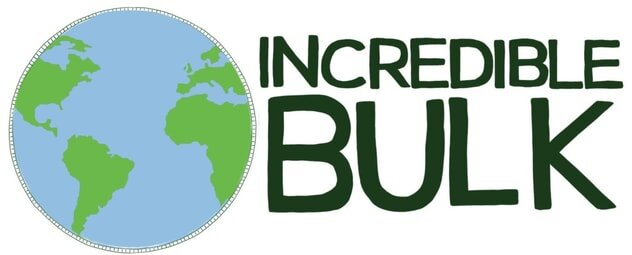Your Zero Waste Cleaning Journey: Why It Matters & How to Get Started
/Starting a zero waste lifestyle often begins with a simple goal: avoiding single-use plastics. But as you dig deeper, you might also start questioning the ingredients in everyday products—especially home cleaning items.
Just like plastic, the use of synthetic chemicals has exploded over the last century. Many common household cleaners are packed with potentially harmful substances. Between 1970 and 1995 alone, the production of synthetic organic chemicals tripled—from 50 million to 150 million tons. Today, that number is even higher. In fact, chemicals are now used in around 96% of manufactured products.
With more chemicals in circulation, concerns about our exposure to them are growing. Studies show that chemicals can travel long distances through air and water, and many end up in our bodies. Research has linked certain chemicals to rising rates of chronic health issues like childhood cancers, infertility, and developmental disorders.
One major study from the University of Bergen tracked over 6,000 people for 20 years. The results? Women who regularly used cleaning sprays had lung damage comparable to smoking 20 cigarettes a day for a decade or more.
Common Chemicals to Avoid:
• Formaldehyde
• Ammonia
• Chlorine
• Synthetic Fragrances
• Titanium Dioxide
• Benzisothiazolinone (BIT)
• Phosphates
• EDTA
• Methylisothiazolinone (MI)
• Methylchloroisothiazolinone (MCI)
• Triclosan
Two Natural Cleaning Powerhouses: Vinegar & Bicarbonate of Soda
Luckily, safe, natural alternatives have been around for thousands of years. The ancient Egyptians used vinegar and bicarbonate of soda (baking soda) as far back as 3500 BC—and they still work wonders today.
Vinegar
Vinegar’s cleaning power comes from its acidity, thanks to acetic acid, which breaks down grime, soap scum, and hard water deposits. Distilled white vinegar, with a pH of 2.4, is especially effective.
Best uses:
• Windows
• Non-waxed floors
• Finished wood
• Stain removal
Avoid using on: stone, cast iron, aluminum, hardwood floors, or unfinished wood.
Bicarbonate of Soda (Baking Soda)
Baking soda is alkaline and works in three main ways:
1. Neutralizes odors (most odors are acidic)
2. Reacts with vinegar to help unclog drains and lift tough stains
3. Acts as a gentle abrasive for scrubbing surfaces
Together, vinegar and baking soda are affordable, effective, and non-toxic. Want ideas for how to use them? Check out our blog on Bi Carb and Vinegar and DIY recipes—including surface sprays, room deodorizers, and more!
No Time for DIY? We’ve Got You Covered.
If making your own cleaners isn’t an option right now, no problem. We stock eco-friendly, non-toxic products from brands Bio-D and SESI:
• Bio-D is a UK family business that makes plant-based cleaning products, free from harmful chemicals.
• SESI is an Oxford-based social enterprise offering refillable cleaning products in a closed-loop system—helping you avoid single-use plastic.
We buy in bulk, so you can bring your own containers and refill. It’s simple, sustainable, and effective.
Take a look at our home cleaning range available for refill and home delivery.
Take a look at Bio D cleaners available in the van:
from Sesi:
As well as our Glass and Mirror Tablet from Skosh.
Information from:
Identifying and Reducing Environmental Health Risks of Chemicals in Our Society
